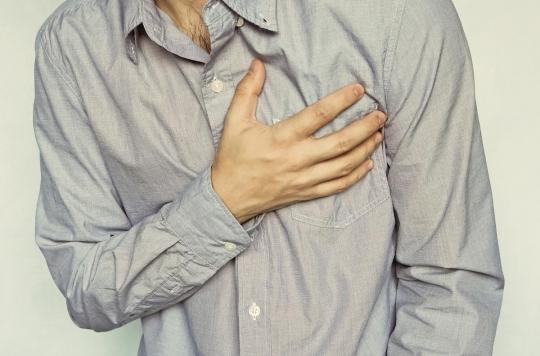Ivabradine, a drug used against chronic heart failure, would lower the heart rate and improve the quality of life of Covid-long patients who suffer, several months after the infection, from many symptoms including fatigue chronic.

- The symptoms of long Covid are very heterogeneous but some come back quite often, such as STOP: postural orthostatic tachycardia syndrome.
- STOP affects the autonomic nervous system and causes an elevated heart rate, mostly when standing.
- Ivabradine lowers patients’ heart rate and improves their quality of life without adverse side effects.
Long Covids are far from an exception and many patients still have symptoms several months after being infected with Covid-19. These symptoms are very heterogeneous but some recur quite often, such as STOP: postural orthostatic tachycardia syndrome. American researchers from the University of California argue that a drug usually used to treat heart failure, ivabradine, is effective in relieving these cardiac symptoms of long Covid. They presented the results on February 15 in the Journal of the American College of Cardiology.
A medicine for heart failure
STOP affects the autonomic nervous system and causes an elevated heart rate, mostly when standing. STOP is usually caused by a viral infection, trauma, surgery, or forced bed rest. It often affects young women who are either athletes or very active. For the time being, no existing treatment can treat it while it causes numerous deteriorations in the quality of life with several associated symptoms such as brain fog, dizziness, palpitations, tremors, fatigue and weakness or even blurred vision. As many symptoms as are found in many long Covids, as is the case for Cécilia* who testified for Why Doctor or Hadrien, only 14 years old, and whose mother shared her daily life with us.
Ivabradine is a drug used to treat heart failure by lowering heart rate without affecting blood pressure, suggesting to researchers that it could be effective against STOP. “When we can reduce the heart rate, we offer these patients the ability to stand up, which they could not do without difficulty before due to their STOPcontinues Pam Taub, cardiologist at the Cardiovascular Institute at UC San Diego Health and associate professor of medicine at UC San Diego School of Medicine.
Improved quality of life
The study was conducted for one month with 22 patients aged 32 on average and carried out in a randomized manner with the taking of a placebo. At the end of the month, all participants underwent a week-long washout period and then the groups were reversed. During the two months, the patients also had 7 medical consultations during which their plasma norepinephrine levels were measured and tilt tests were performed to observe the patient’s heart rate while sitting, lying or standing. Noradrenaline is a stress hormone and a neurotransmitter. In blood plasma, norepinephrine is a good measure of sympathetic nervous system activity.
Researchers have found that ivabradine lowers patients’ heart rate and improves their quality of life, without adverse side effects. The results revealed that after one month of treatment with ivabradine, while standing, the patients’ heart rate fell from between 100 and 115 beats per minute to around 77 beats per minute. These patients also reported seeing signs of improvement in their quality of life after taking the drug. “In our current practice, we see many patients who have been infected with Covid-19 and who, several months later, present with the symptoms of STOPconcludes one of the authors, Dr. Jonathan Hsu, a cardiologist at UC San Diego Health. This study suggests that treatment with ivabradine could help these patients with long Covid, which we will have to validate with a future study..”

.

















